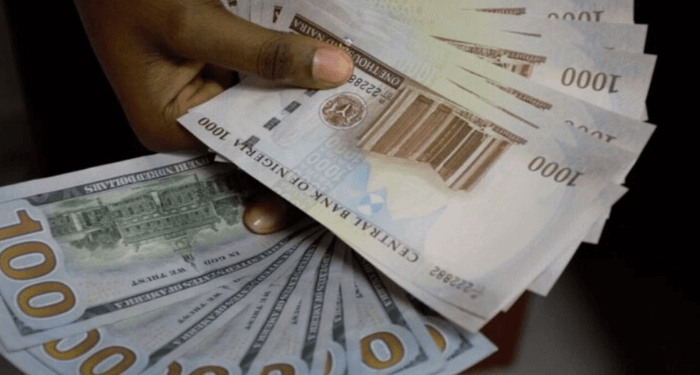The Nigerian currency, the naira, experienced a substantial depreciation in the third quarter of 2023, marking a concerning trend for the nation’s economic outlook, according to both official and unofficial data sources.
As the third quarter of 2023 came to a close, the Nigerian economy bore witness to a worrisome development – the sharp depreciation of the national currency, the naira. According to data compiled by Nairametrics, the official exchange rate at the end of Q3 stood at N755.27/$1, a notable decline from the N769.25/$1 rate recorded at the close of Q2. This decline in the official exchange rate, however, pales in comparison to the more alarming figures reported on the parallel or “black” market, where the naira plummeted from N770/$1 to N1000/$1 over the same period, resulting in a staggering 23% loss.
Simultaneously, Nigeria’s external reserves have experienced a decrease from $34.1 billion at the end of the second quarter to $33.2 billion by the end of the third quarter, prompting further concerns about the nation’s economic stability.
The widening gap between the official and unofficial exchange rates underscores the persistent scarcity of foreign exchange in Nigeria, exacerbated by the divergent policies of the Central Bank of Nigeria (CBN) and market forces. The CBN has attributed the currency depreciation primarily to a forex backlog estimated to be between $6 billion and $10 billion.
During a recent Senate confirmation hearing for the central bank governor, Yemi Cardoso emphasized the need to address these unsettled obligations, stating, “Number one – it is that of which I’ll term an operational issue. Right now, we have a situation where we are aware there are unsettled obligations of the central bank, whether it is $4 billion, $5 billion, $7 billion, I don’t know. But definitely, the immediate priority will be to verify the authenticity and extent of the unsettled obligation, and once we do that, we need to look for a way to take care of it. It would be naive for us to think we will be able to make progress if we don’t handle that side of the foreign exchange.”
The depreciation of the naira has had detrimental effects on the Nigerian economy, including increased import costs, elevated inflation rates, a decline in purchasing power, and a discouraging environment for investment. In September, the National Bureau of Statistics (NBS) reported that the inflation rate had risen to 25.8%, further highlighting the challenges faced by the nation.
Looking ahead, analysts anticipate continued pressure on the naira in the fourth quarter of 2023. This follows a sharp depreciation observed in November 2022 after the CBN announced its currency redesign policy. To potentially mitigate further depreciation, the CBN may need to devalue the official exchange rate to align it with market realities and preserve the dwindling external reserves, which have dropped from $34.1 billion in June to $33.2 billion in September.
Analysts at Ratecaptain suggest that a more significant devaluation might be averted if the CBN can fulfill its obligations to clear the forex backlogs. However, achieving this may necessitate the government seeking new loans from friendly countries.
Without swift action on these fronts, experts with a cautious outlook believe that the parallel market rate may breach the N1100/$1 mark by December, driven by increasing demand for dollars ahead of the festive season and amid a new wave of Nigerians seeking to relocate abroad in the coming year, popularly referred to as “Japa.” The challenge ahead for Nigeria’s economic stability remains substantial, with the naira’s performance in the last quarter serving as a stark reminder of the hurdles that lie ahead.









